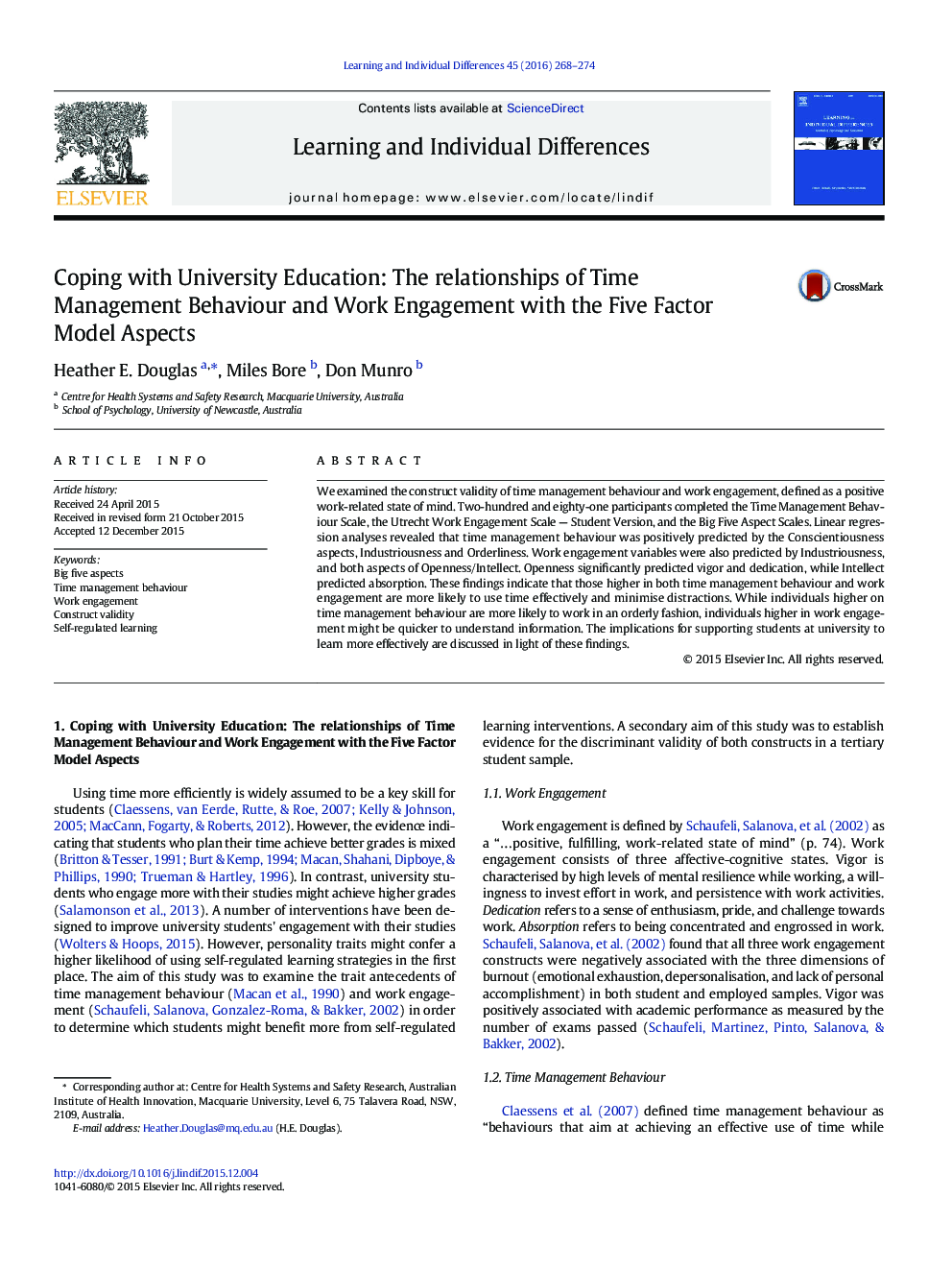| Article ID | Journal | Published Year | Pages | File Type |
|---|---|---|---|---|
| 364529 | Learning and Individual Differences | 2016 | 7 Pages |
•Personality traits provide the controls for self-regulated learning strategies.•We examined the trait antecedents of time management behaviour and work engagement.•Time management behaviour was predicted by aspects of Conscientiousness.•Work engagement was predicted by Industriousness, and Openness/Intellect aspects.•Implications for supporting students at university are discussed.
We examined the construct validity of time management behaviour and work engagement, defined as a positive work-related state of mind. Two-hundred and eighty-one participants completed the Time Management Behaviour Scale, the Utrecht Work Engagement Scale — Student Version, and the Big Five Aspect Scales. Linear regression analyses revealed that time management behaviour was positively predicted by the Conscientiousness aspects, Industriousness and Orderliness. Work engagement variables were also predicted by Industriousness, and both aspects of Openness/Intellect. Openness significantly predicted vigor and dedication, while Intellect predicted absorption. These findings indicate that those higher in both time management behaviour and work engagement are more likely to use time effectively and minimise distractions. While individuals higher on time management behaviour are more likely to work in an orderly fashion, individuals higher in work engagement might be quicker to understand information. The implications for supporting students at university to learn more effectively are discussed in light of these findings.
